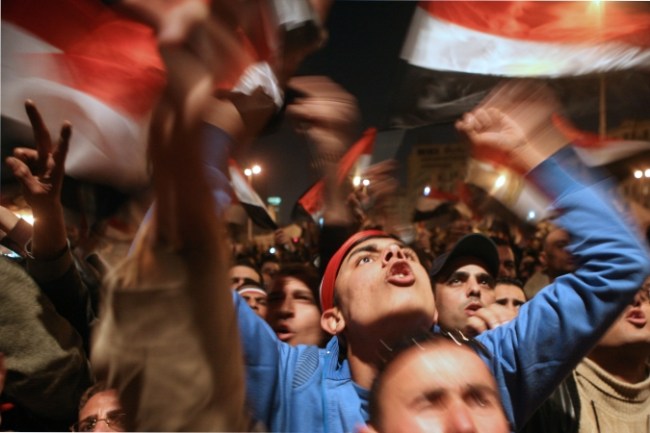
After nearly three weeks of anti-government protests in Egypt, the country’s embattled president, Hosni Mubarak, has stepped down from power, The New York Times reports. Control of the country has been handed over to the Egyptian military, which has pledged to enact a series of constitutional reforms.
Mubarak’s resignation, the news of which reportedly set off a tidal wave of celebration in Cairo, comes after 18 days of protests. He had been in power for nearly 30 years. According to a military communiqué, Egypt’s Vice President Omar Suleiman may take over for Mubarak.
The campaign to get Mubarak to step down, and for Egypt to adopt a more democratic government, began as a Facebook campaign started by Google marketing executive Wael Ghonim, who has been labeled a hero of the Egyptian revolution for his role.
Ghonim, went missing on January 28, three days after protests erupted in the Middle Eastern country on January 25. Egyptian authorities later released the Google executive on February 7. Ghonim was part of a larger group of tech-savvy revolutionaries who helped spark Egypt’s pro-democratic movement.
Upon hearing the news of Mubarak’s resignation, Ghonim — who rejects his “hero” label — tweeted to his followers, “The real hero is the young Egyptians in Tahrir square and the rest of Egypt,” punctuated by the now-iconic “#Jan25” hashtag. He followed this up with, “Welcome back Egypt.”
Social media outlets like Facebook and Twitter played a vital role in the Egyptian revolution, helping to get word out to the rest of the world about what was happening on the ground. This, in spite of the government’s near-complete five-day shutdown of Internet, Blackberry and mobile phone access in Egypt.
Google also helped, having created a Speak2Tweet application, with the help of Twitter, that enabled protesters to phone-in their tweets.
Needless to say, the role of social media has become far more vital to the world than many of us anticipated when we first started tweeting. As the protesters on the ground are reportedly now shouting, because of services like Twitter and Facebook, “Egypt is free.”
Update: Speaking with CNN’s Wolf Blitzer following the fall of Mubarak, Wael Ghonim gave Facebook a shout-out of which Mark Zuckerberg should be proud: “First Tunisia, now Egypt, what’s next? Blitzer asked. “Ask Facebook,” Ghonim said, “I want to meet Mark Zuckerberg one day and thank him, actually.”
(Image via Al Jazeera English live blog)
